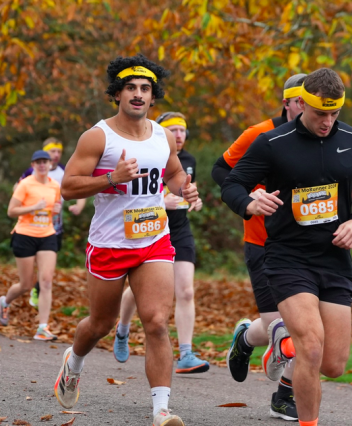23 Sep, 2015 - General
Hydration - Dehydration - Rehydration
We all agree that water is enough for hydration but I started wonder if water will be enough to rehydrate while preparing for the Mo running challenge. Here is what I found.
Water is for sure an essential carrier for nutrients and metabolites, and it comprises 90% of body weight in 6 months old foetus and 75% of body weight in infants and children and a bit less in grown-ups.
Electrolytes are minerals (Sodium, Chloride, Potassium, Calcium and Magnesium) in the blood and other body fluids that carry an electric charge and control the amount of water in the body at any given time. Therefore, they play an important part in hydration. During regular activities like running, the body loses balance of electrolytes in sweat. The amount of sweat production depends on environmental temperature, humidity, activity levels, and type of clothing worn.
Two early signs of dehydration are thirst and dark coloured urine. This is the body's way of trying to increase water intake and decrease water loss.
Other symptoms may include:
Dizziness or light-headedness; tiredness; dry mouth, lips and eyes; passing small amounts of urine infrequently (less than three or four times a day);
Dehydration can also lead to a loss of strength and stamina. Mild levels of dehydration may produce disruptions in mood and cognitive functioning such as concentration, alertness and short-term memory. Therefore, if we exercise, replacing electrolytes is an important task.
1 hour of moderate to high intensity exercise leads to sweat loss of 0.5L in 15°C, thus you need to drink 0.75L in this temperature.
1 hour of moderate to high intensity exercise leads to sweat loss of 1.5L in 25°C, thus you need to drink around 2.5L in this temperature.
It’s interesting to know also that 5% decrease in body mass due to hydration leads to a 30% decrease in endurance performance.
How to rehydrate:
Aid heat loss by limiting clothing layers/ head gear and reducing time in hot environments (limit temperature at home, avoid saunas).
Have Coconut water – sugar free only - whenever possible.
Mix one part of live yoghurt with 2 parts of water and a pinch of salt (in other words drink laban, ayrian, lassi) and have it regularly.
Consume a good mixture of fruits and vegetables as they contain electrolytes and water (bananas are known for their potassium for example; all green leafy vegetables contain Calcium and Magnesium etc.).
Regularly make your own lemonade with a bit of salt and a bit of sugar.
Add rehydration sachets to your water.
What do we need to consider when we speak about sodium?
The recommended daily intake for Sodium ion (Na+) at the moment is:
- 1 to 3 years – 2g salt a day (provides 0.8g sodium)
- 4 to 6 years – 3g salt a day (provides 1.2g sodium)
- 7 to 10 years – 5g salt a day (provides 2g sodium)
- 11 years and over – 6g salt a day (provides 2.4g sodium)
Perhaps having varieties of fruit and vegetables with plenty of liquids and a pinch of salt is necessary for rehydration after exercise after all.
My personal favourite rehydration drink will be the ayrian. What’s your favourite way to rehydrate?







